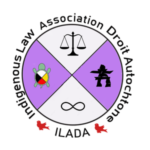Billets de blogue, lettres ouvertes, articles savants, interventions médiatiques, activisme effectué et bourses reçues : la pandémie n’a pas empêché nos étudiantes et étudiants d’être très actifs cet automne sur une grande diversité de plans.
 « Mot en n » : l’indissociabilité des mots et des maux
« Mot en n » : l’indissociabilité des mots et des maux
Lettre collective du BLSAM, Le Délit, 1 décembre 2020
Au cours des derniers mois, plusieurs personnalités connues et moins connues ont exprimé leur opinion personnelle, parfois très divergente, au sujet de l’utilisation du « mot en n ». Il a été extrêmement désolant de constater que le monopole de cette conversation par ces personnes a accordé très peu de places aux étudiant.e.s noir.e.s, excluant ainsi les voix des plus concernées. La conversation mérite d’être recentrée autour des individus qui ont été relégués aux marges : les étudiant.e.s noir.e.s. Le « mot en n » ne devrait pas être banalisé. Lire la lettre.
Climate change and the race for the new WTO director-general
 BCL/JD student Simon Rollat, Human Rights Pulse, 1 December 2020
BCL/JD student Simon Rollat, Human Rights Pulse, 1 December 2020
The Earth is changing, its future looks bleak. Yet, we – the world – produce and consume goods as if nothing were at stake. How is it, then, that “the WTO does not discuss climate change?”, asked Amina Mohamed, once one of the shortlisted candidates for the post of new Director-General at the World Trade Organization (WTO). Read the post.
Challenging Censorship: Open Society Justice Initiative Opposes ICC Executive Order
 BCL/JD student Kimia Towfigh, CHRLP Blog, 16 November 2020
BCL/JD student Kimia Towfigh, CHRLP Blog, 16 November 2020
Kimia Towfigh examines a recent executive order that sanctions supporters of the International Criminal Court who provide evidence of alleged war crimes committed by US troops in Afghanistan.
Drawing on a current lawsuit instituted by the Open Justice Society Initiative, the author posits that the executive order ultimately curtails free speech and impedes meaningful civic participation on issues of international law and justice. Read the post.
South Asia, let’s examine our discriminatory pandemic policies
DCL candidates Upasana Dasgupta & Vishakha Wijenayake, South Asia Journal, 16 November 2020
In South Asia, the poor face the brunt of the pandemic’s effects. The poor have less access to health care, are more likely to have lost their job, and are more vulnerable to spikes in food prices. While the social distancing measures were made the central point of the campaign against COVID-19, the impossibility of implementing these measures in slums was overlooked. There have been success stories of containing COVID-19 in Dharavi, Mumbai, where 650,000 people are spread over 2.5 sq km. However, perhaps the reason why the number of COVID-19 cases in slums has not been as elevated is that people are not being tested in these areas, due to various reasons, including lack of money for treatment by the dwellers and reluctance to share positive COVID-19 diagnoses due to a fear of being ostracized. Keep reading.
Effects of Bill 21 on a Muslim Woman
 CityNews, 9 November 2020
CityNews, 9 November 2020
“It has made me feel unwelcome in Quebec as someone who has lived my life, my whole life in Quebec,” says Asiyah Siddique, second-year McGill Law student who is seeing her life path change because of Bill 21 – the province’s law on religious symbols.
“This law has made me feel […] that regardless of my qualifications, that I’m not worthy of being in Quebec, working in Quebec and serving Quebec citizens.” Watch the clip.
Law students protest Quebec’s religious symbols ban
CityNews Montreal, 2 November 2020
The Muslim Law Students’ Association and the Radical Law Students’ Association organized a sit-in outside of the municipal courthouse to protest Bill 21 on November 2. CityNews MTL interviewed several students and Dean Leckey. Watch the clip.
Quantum Computing, Cryptography, and Information Security: Where Are We Headed?
DCL candidate Luigi Bruno, Cyber Business Review, 2 November 2020
Last year’s news of Google achieving quantum supremacy, together with the growing early-stage offering of cloud quantum computing services, has put this new computing paradigm under the spotlight. Quantum computing is still far from mainstream adoption, and it is currently mainly used for scientific purposes. Once it becomes commercially available, it could easily break current encryption algorithms and threaten information security and privacy. Keep reading.
McGill Law Student wins the 2020 Christine Huglo Robertson Essay Prize
 This summer, the Canadian Institute for the Administration of Justice (CIAJ) awarded BCL/JD candidate Michelle Pucci its 2020 Christine Huglo Robertson Essay Prize for her paper entitled “Who Sets the Course in a Health Crisis Response”, which deals with Indigenous communities’ response to emergencies and to COVID-19.
This summer, the Canadian Institute for the Administration of Justice (CIAJ) awarded BCL/JD candidate Michelle Pucci its 2020 Christine Huglo Robertson Essay Prize for her paper entitled “Who Sets the Course in a Health Crisis Response”, which deals with Indigenous communities’ response to emergencies and to COVID-19.
She has also published posts on the CIAJ blog this fall. Prior to her McGill Law studies, Pucci was a reporter and producer for CBC Nunavut, a fellow at The Walrus, and an intern at the Montreal Gazette.
Ministre et militante: La ministre de la Justice de la Namibie a expliqué les principes qui guident son travail.
 Gabrielle Genest, candidate au BCL/JD, Le délit, 27 octobre 2020
Gabrielle Genest, candidate au BCL/JD, Le délit, 27 octobre 2020
Dans le cadre du premier atelier Annie MacDonald Langstaff de l’année 2020–2021, la Professeure Shauna Van Praagh et le Centre pour les droits de la personne et le pluralisme juridique de McGill ont invité, le 23 octobre dernier, la ministre de la Justice de la Namibie Yvonne Dausab.
Sous la thématique du potentiel et de l’actuel pouvoir des femmes en droit, la ministre Dausab a répondu sur Zoom, en direct de la Namibie, aux questions de la candidate au doctorat en droit humanitaire international Vishakha Wijenayake. Lire l’article.
Les étudiant.e.s du CRIDAQ en vedette: Atagün Kejanlıoğlu
Capsules du CRIDAQ, 26 octobre 2020
Le Centre de recherche interdisciplinaire sur la diversité et la démocratie (CRIDAQ) a créé une série de capsules visant à présenter quelques étudiant.e.s et postdoctorant.e.s qui travaillent sous la direction d’un membre du CRIDAQ. Une capsule met en vedette le doctorant Atagün Mert Kejanlıoğlu, qui travaille sous la direction de la professeure Johanne Poirier. Visionner la capsule.
Unequal access to law school: a study of gender and class in Colombia
DCL candidate María Adelaida Ceballos-Bedoya, International Journal of the Legal Profession, April 2020
In Columbia, women with low economic capital who enter legal studies tend to be the most disadvantaged because they can neither afford the best private law programs nor pass the admission tests of the best public programs. By contrast, upper-class women are guaranteed access to high-quality education because they have the economic capital to enter the best private programs without having to overcome major academic filters. Given that most law students have limited economic resources, one could say that the feminization of legal education has been achieved at the expense of lower-class women who are forced to study in low-quality programs. In this regard, Colombian legal education reproduces gender and class inequalities instead of reducing them. Keep reading.
Indigenous Law Association de Droit Autochtone (ILADA) launches Rooted, an Indigenous Law Publication
 Rooted aims to showcase academic articles, editorial pieces, poetry, art, and other forms of content generated on topics of Indigenous law. The platform features contributions from Indigenous scholars, elders, youth, and allies on an annual theme. The project is in part a response to a call that several Indigenous scholars have issued: to take Indigenous constitutional orders seriously.
Rooted aims to showcase academic articles, editorial pieces, poetry, art, and other forms of content generated on topics of Indigenous law. The platform features contributions from Indigenous scholars, elders, youth, and allies on an annual theme. The project is in part a response to a call that several Indigenous scholars have issued: to take Indigenous constitutional orders seriously.
The Rooted editorial team solicits and accepts submissions on a particular theme, set annually. Submissions will be accepted on a rolling basis. Please submit to rooted.submissions@gmail.com.
This year’s Co-Editors-in-Chief are BCL/JD students Sarah Nixon and Larissa Parker. Find out more at https://indigenous-law-association-at-mcgill.com/rooted-publication/

